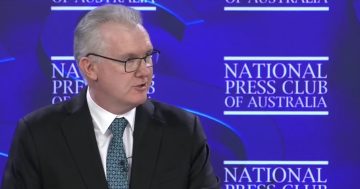 A report by the Australian Competition and Consumer Commission (ACCC) has found Australians to be paying too much in foreign money transaction fees.
A report by the Australian Competition and Consumer Commission (ACCC) has found Australians to be paying too much in foreign money transaction fees.
In the first report of its kind released by the ACCC, the Commission highlights international money transfers, saying the main beneficiaries were the major banks.
It found that of the more than $40 billion in foreign currency transactions that took place in Australia each year, prices were difficult to compare; customer inertia was limiting the growth of smaller providers and new entrants; and loyalty to the big four banks was costing consumers.
The report found that using payment cards was generally cheaper than foreign cash, travel cards and international money transfers, and de-banking — where third party providers were denied access to banking services by the major banks, who were also their competitors — was a significant threat to competition in the supply of international money transfers.
The ACCC also found that currency conversion rates varied substantially between different providers, using as an example a customer transferring $10,500 to the United States who could save up to $550 by using the cheapest provider.
The report also discovered that Australian consumers were paying higher fees than consumers in other countries.
“In some circumstances Australian consumers are paying 30 per cent more than those in the United States for the same service,” the ACCC said.
In its response to the findings, the Government strongly supported the Commission’s recommendations aimed at increasing competition and lowering transaction fees.
In a statement, the Treasurer said the ACCC would assess industry’s implementation of the recommendations and report back within 12 months.
“If the ACCC finds industry is not complying with these recommendations, or that the implementation of these recommendations has failed to address the concerns that have been identified, the Government will consider taking further action,” the Treasurer said.









